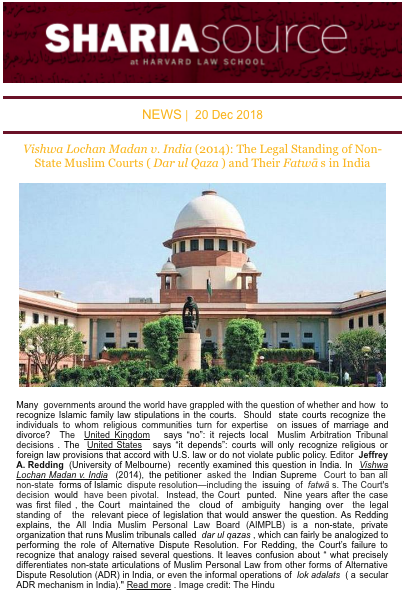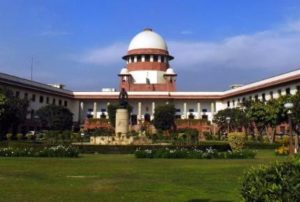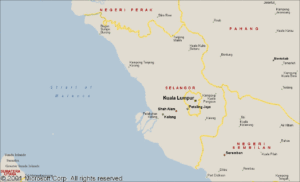
 Vishwa Lochan Madan v. India (2014): The Legal Standing of Non-State Muslim Courts (Dar ul Qaza) and Their Fatwās In India Many governments around the world have grappled with the question of whether and how to recognize Islamic family law stipulations in the courts. Should state courts recognize the individuals to whom religious communities turn for expertise on issues of marriage and divorce? The United Kingdom says “no”: it rejects local Muslim Arbitration Tribunal decisions. The United States says “it depends”: courts will only recognize religious or foreign law provisions that accord with U.S. law or do not violate public policy. Editor Jeffrey A. Redding (University of Melbourne) recently examined this question in India. In Vishwa Lochan Madan v. India (2014), the petitioner asked the Indian Supreme Court to ban all non-state forms of Islamic dispute resolution—including the issuing of fatwās. The Court’s decision would have been pivotal. Instead, the Court punted. Nine years after the case was first filed, the Court maintained the cloud of ambiguity hanging over the legal standing of the relevant piece of legislation that would answer the question. As Redding explains, the All India Muslim Personal Law Board (AIMPLB) is a non-state, private organization that runs Muslim tribunals called dar ul qazas, which can fairly be analogized to performing the role of Alternative Dispute Resolution. For Redding, the Court’s failure to recognize that analogy raised several questions. It leaves confusion about “what precisely differentiates non-state articulations of Muslim Personal Law from other forms of Alternative Dispute Resolution (ADR) in India, or even the informal operations of lok adalats ( a secular ADR mechanism in India).” Read more. Image credit: The Hindu
Vishwa Lochan Madan v. India (2014): The Legal Standing of Non-State Muslim Courts (Dar ul Qaza) and Their Fatwās In India Many governments around the world have grappled with the question of whether and how to recognize Islamic family law stipulations in the courts. Should state courts recognize the individuals to whom religious communities turn for expertise on issues of marriage and divorce? The United Kingdom says “no”: it rejects local Muslim Arbitration Tribunal decisions. The United States says “it depends”: courts will only recognize religious or foreign law provisions that accord with U.S. law or do not violate public policy. Editor Jeffrey A. Redding (University of Melbourne) recently examined this question in India. In Vishwa Lochan Madan v. India (2014), the petitioner asked the Indian Supreme Court to ban all non-state forms of Islamic dispute resolution—including the issuing of fatwās. The Court’s decision would have been pivotal. Instead, the Court punted. Nine years after the case was first filed, the Court maintained the cloud of ambiguity hanging over the legal standing of the relevant piece of legislation that would answer the question. As Redding explains, the All India Muslim Personal Law Board (AIMPLB) is a non-state, private organization that runs Muslim tribunals called dar ul qazas, which can fairly be analogized to performing the role of Alternative Dispute Resolution. For Redding, the Court’s failure to recognize that analogy raised several questions. It leaves confusion about “what precisely differentiates non-state articulations of Muslim Personal Law from other forms of Alternative Dispute Resolution (ADR) in India, or even the informal operations of lok adalats ( a secular ADR mechanism in India).” Read more. Image credit: The Hindu
 When a Fatwā Becomes Law: Examining the Fatwā’s Place in the Malaysian Islamic Legal System Student editor Alizeh Ahmad explores recent developments in Malaysia, wherein local courts recognize certain fatwā s as binding law. She notes that the situation and process of recognition seems rather unique, thus exploring the “complex system that governs the institutionalization of a fatwā ’s authority.” Read more. Image credit: Microsoft
When a Fatwā Becomes Law: Examining the Fatwā’s Place in the Malaysian Islamic Legal System Student editor Alizeh Ahmad explores recent developments in Malaysia, wherein local courts recognize certain fatwā s as binding law. She notes that the situation and process of recognition seems rather unique, thus exploring the “complex system that governs the institutionalization of a fatwā ’s authority.” Read more. Image credit: Microsoft
 LEGISLATION: Malaysian Law on Local Fatwā s as Law In Malaysia, state officials passed The Administration of the Religion of Islam (State of Selangor) Enactment in 2003, establishing a fatwā-legalization process. The law also outlines the role of the muftī as chairman of Selangor’s state fatwā committee. As the main piece of legislation governing Selangor’s sharīʿa (Bahasa: Syariah) courts, Islamic finance practices , and conversions to Islam, the law serves as umbrella legislation for Islamic practices that the state wishes to regulate. Full text and summary, by student editor Alizeh Ahmad. Image credit: Public domain/Selangor government
LEGISLATION: Malaysian Law on Local Fatwā s as Law In Malaysia, state officials passed The Administration of the Religion of Islam (State of Selangor) Enactment in 2003, establishing a fatwā-legalization process. The law also outlines the role of the muftī as chairman of Selangor’s state fatwā committee. As the main piece of legislation governing Selangor’s sharīʿa (Bahasa: Syariah) courts, Islamic finance practices , and conversions to Islam, the law serves as umbrella legislation for Islamic practices that the state wishes to regulate. Full text and summary, by student editor Alizeh Ahmad. Image credit: Public domain/Selangor government
See the full newsletter.

